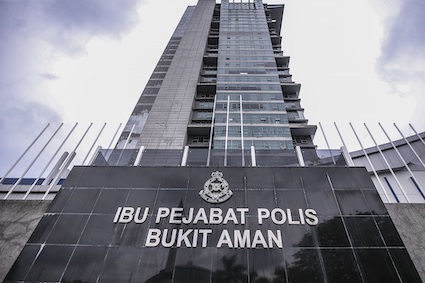Meta removes Malaysian ‘troll farm’ Facebook, Instagram accounts, some with links to Malaysian police

(NST) – The police have come under scrutiny after Meta said it had removed more than 600 Facebook and Instagram accounts from Malaysia for being part of a “troll farm” aimed at corrupting and manipulating public discourse via fake accounts.
The social media conglomerate’s Quartely Adversarial Threat Report also disclosed that the accounts removed for violating their policy against Coordinated Inauthentic Behaviour (CIB) were found to have links with the police force.
A total of 596 accounts, 180 Pages and 11 Groups were removed from Facebook while 72 accounts were taken down from Instagram for being part of the network.
The report claimed the network originated in Malaysia and targeted domestic audiences in the country.
“The individuals behind it ran a troll farm — a coordinated effort by co-located operators to corrupt or manipulate public discourse by using fake accounts and misleading people about who is behind them. They were active across the internet, including Facebook, TikTok, Twitter and Instagram, and posted memes in Malay in support of the current government coalition, with claims of corruption among its critics.
“On Facebook, this network managed Pages, including those posing as independent news entities, and promoted police while criticising the opposition. Typically, their posting activity accelerated during weekdays, taking breaks for lunch.”
However the reports also said that the fake accounts were relatively underdeveloped and that a number had used stolen profile pictures.
“Some of them were detected and disabled by our automated systems. We found this network after reviewing information about a small portion of this activity initially suspected to have originated in China by researchers at Clemson University.
“Although the people behind it attempted to conceal their identity and coordination, our investigation found links to the Royal Malaysia Police (PDRM),” read the report.
The report also said that one or more of these dubious Pages were followed by 427,000 accounts.
“Around 4,000 accounts joined one or more of these Groups and about 15,000 accounts followed one or more of these Instagram accounts.”
According to the report, around $6,000 (RM26,739) was spent for advertisements on Facebook and Instagram, paid for primarily in ringgit.
Meta defined CIB as efforts to manipulate public debate for a strategic goal, in which fake accounts are a central operational element.
“In each case, people coordinate with one another and use fake accounts to mislead others about who they are and what they are doing. When we investigate and remove these operations, we focus on behaviour rather than content — no matter who’s behind them, what they post or whether they’re foreign or domestic.”
Inauthentic behaviour (IB), as Meta’s Community Standards dictates, is an effort to mislead people on Facebook about the popularity of content, the purpose of a community (i.e. Groups, Pages, Events) or the identity of the people behind it.
“It is primarily centered around amplifying and increasing the distribution of content, and is often (but not exclusively) financially motivated. IB operators typically focus on quantity rather than the quality of engagement. For example, they may use large numbers of low-sophistication fake accounts to mass-post or like their content — be it commercial, social or political. They often use tactics similar to other large-scale online activities, like spam,” it said.
This pattern, said Meta, distinguishes IB from CIB, where operators invest in “mimicking human social activity as closely as possible.”
Meta launched its quarterly report five years ago when it shared findings about purported coordinated CIB by a Russian influenced operation.
It has since expanded to respond to a broader range of what it termed “adversarial behaviours” such as cyber espionage, inauthentic behaviour, and other emerging threats.

